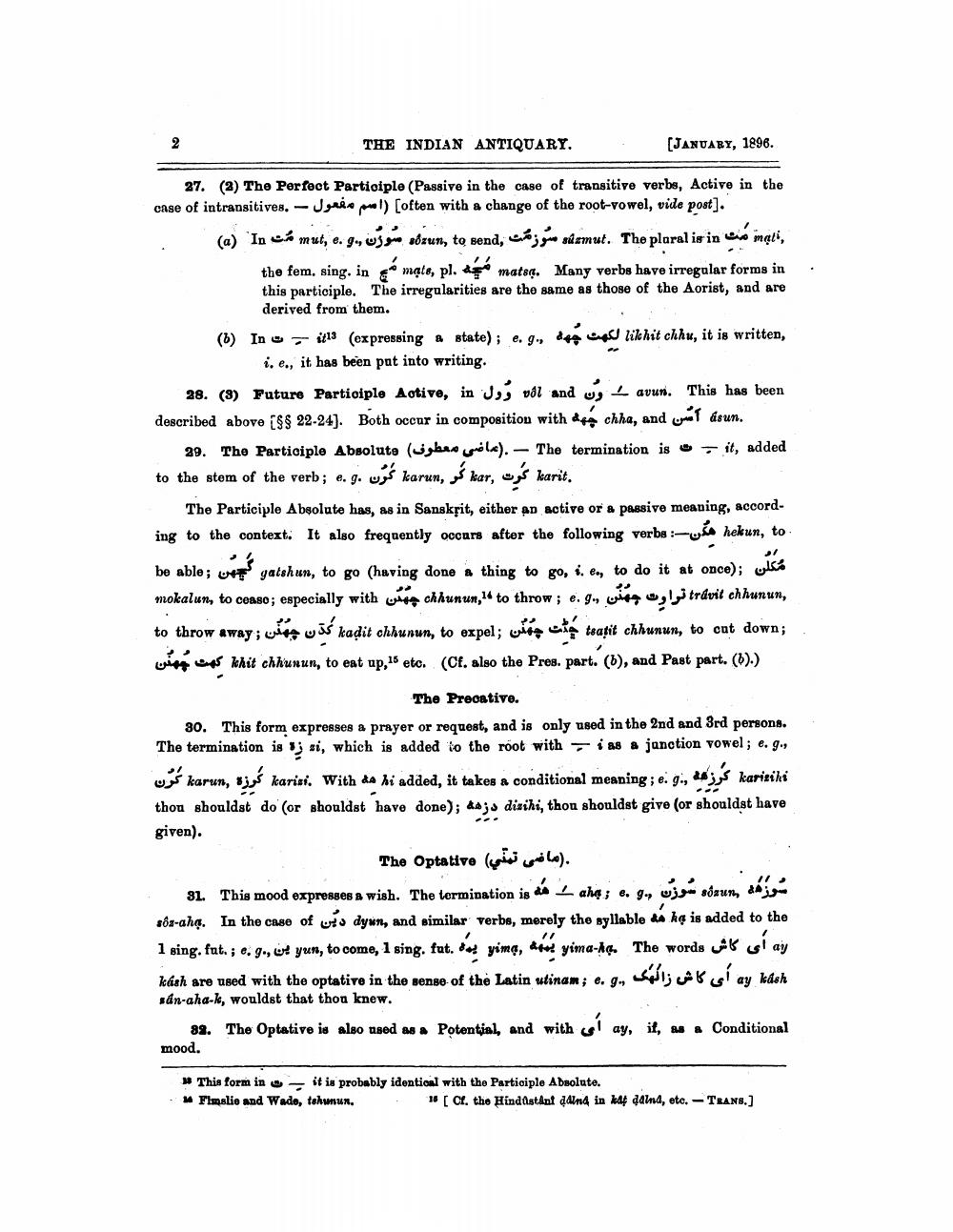________________
THE INDIAN ANTIQUARY.
(JANUARY, 1896.
.
27. (2) The Perfect Participle (Passive in the case of transitive verbs, Active in the cnse of intransitives. - Jynie pl) (often with a change of the root-vowel, vide post].
(a) In ca mut, e. go, wij go sozun, to send, ej gór sùemut. The plaral is in ció mati,
the fem, sing. in a mats, pl. de matsą. Many verbs have irregular forms in this participle. The irregularities are the same as those of the Aorist, and are
derived from them. (6) Ino = idl (expressing a state); e. g, den we likhit chhu, it is written,
i. e., it has been put into writing. 28. (3) Future Participle Active, in Jo's vål and us avun. This has been described above (SS 22-24). Both occur in composition with des chha, and mot disun.
29. The Participle Absolute (cybers wela). — The termination is - it, added to the stem of the verb; e.ge wys karun, s kar, oy karit.
The Participle Absolute has, as in Sanskpit, either an active or a passive meaning, according to the context. It also frequently occurs after the following verbs :- u hekun, to be able; we gatshun, to go (having done a thing to go, i. e., to do it at once); uke mokalun, to conso ; especially with whom chhunun, to throw ; e. g, wieg wy lej trávit ehhunun, to throw away; wiór ws kadit ohhunun, to expel; wóz włą toațit chhunun, to cut down; wieso es khit chkunun, to eat up, 45 etc. (Cf. also the Pres. part. (b), and Past part. ().)
The Precative. 80. This form expresses a prayer or request, and is only used in the 2nd and 3rd persons. The termination is j si, which is added to the root with = i as a janction vowel; e. 9., Was karun, sjus kariai. With da hi added, it takes a conditional meaning ; e. go, jus kariziki thou shouldst do (or shouldst have done); ds;s dixihi, thon shouldst give (or shouldst have given).
The Optative (yani solo). 31. This mood expresses a wish. The termination is as Laha; o. go wigs sdaun, akissốa-ahą. In the case of vés dywn, and similar verbs, merely the syllable as ką is added to the 1 sing, fat. ; 6. g., we yun, to como, I sing. fat. b yimą, ac yima-hę. The words will shay kásh are used with the optative in the sense of the Latin utinam; 6. gSablja B si ay kásh sán-aha-k, wouldst that thou knew.
89. The Optative is also used as a Potential, and with si ay, it, as a Conditional mood.
* This form in it is probably identical with the Participle Absolute. Fimslie and Wado, tohumun.
*[the Hindistant daind in kdy daind, etc. - TRANS.)
•




